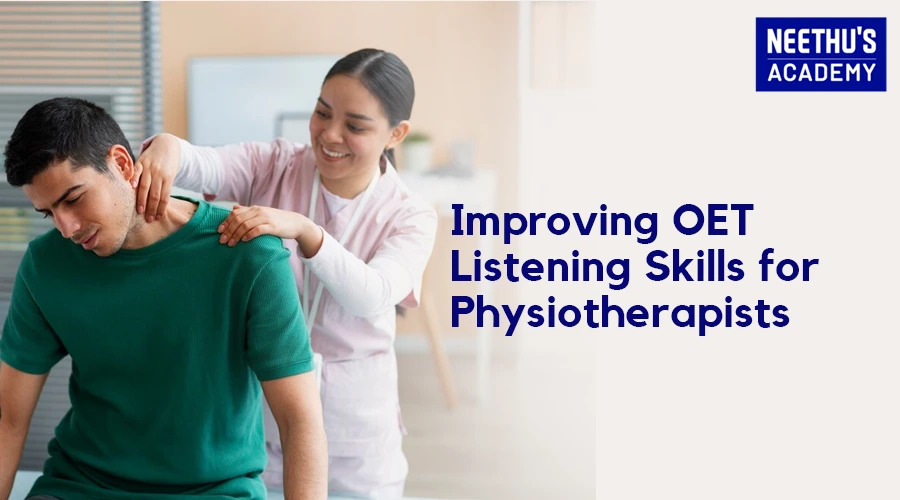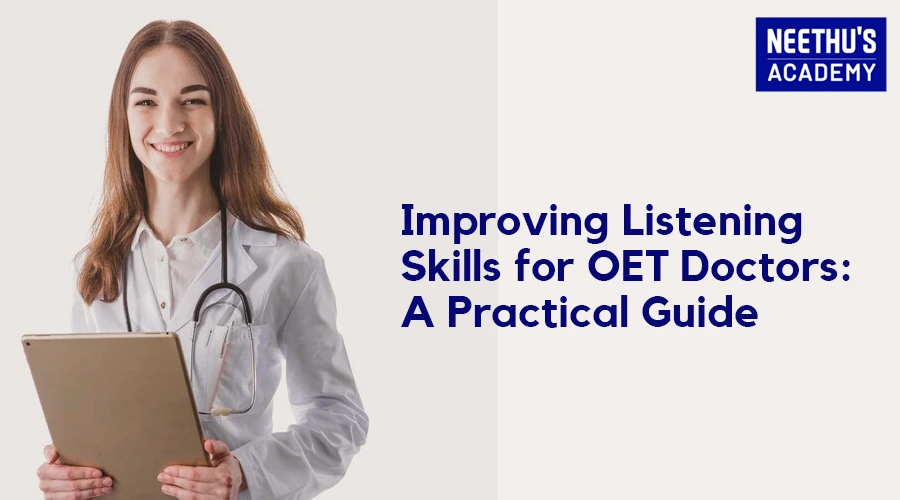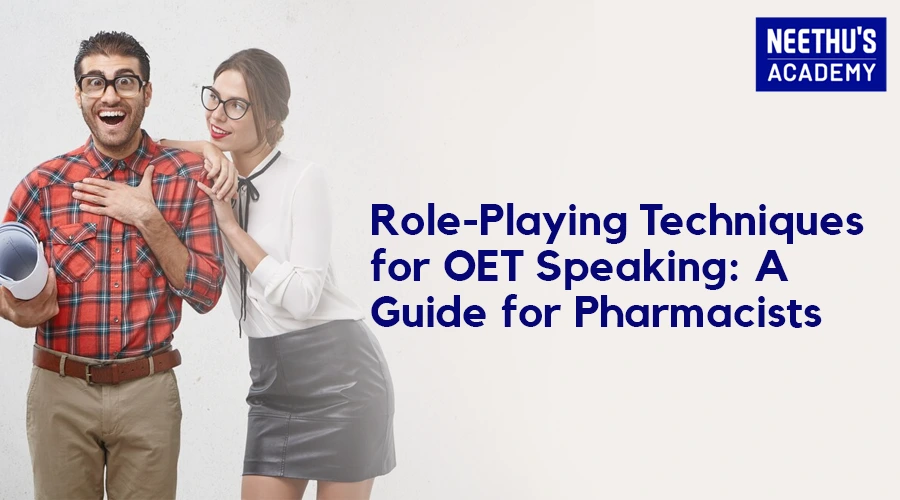OET vs PTE: Which Exam is Better for You?
A common confusion among aspiring healthcare professionals whose aim is an English-speaking country is which exam to take. Two of the most prominent exams in that domain are the OET and the PTE Tests. To make an informed decision about the right exam for you, you must first understand the nuances between OET Vs PTE. This blog will help you with that! We’ll look at the core differences between the two tests and help you decide the right choice for you!
Understanding the OET and PTE Tests
The Occupational English Test (OET)
The Occupational English Test is specifically designed for practicing healthcare professionals in an English-speaking environment. It tests the language abilities to communicate effectively with each other in a healthcare setting. Several regulatory bodies in Australia, the UK, New Zealand, and Ireland, among others, have recognized the test.
In reality, the test takes the medical setting arena and examines the candidate’s ability to deliver and receive medical information properly. This would make OET not just a language test but a preparation essential to ensure safe and competent care of patients in medical settings.
Pearson Test of English (PTE)
The PTE, or the Pearson Test of English, is a more general English language proficiency test that tests the four main sections: listening, reading, speaking, and writing. Unlike OET, PTE is not industry-specific since it tests the broader professional English skills across most other contexts of non-native speakers. Scores for PTE are accepted for many purposes- study, work, and migration purposes in most countries such as Australia, the UK, Canada, and the USA.
The PTE exam always comes with innovative ideas combined with technology to assess candidates by providing automatic scoring, an extremely strong review of the system, and high scores given instantaneously, which makes it popular among students who seek to prove efficiently their proficiency in English.
Who should take the OET Test?
The Occupational English Test is especially helpful for health care professionals such as doctors, nurses, physiotherapists, dentists, and pharmacists.
The OET test for nurses tests the ability to communicate effectively with patients and colleagues in clinical settings. This practical communication feature of OET is especially beneficial for nurses before going into any English-speaking country, where patient care would require clear and empathetic interactions.
Doctors too benefit much from this test. First, it requires doctors to deliver cogent and accurate explanations of complex medical information which is highly valued in treating most diseases. The test basically tests out these critical skills hence ensuring physicians could give crucial health information to patients as well as collaborate with other health care providers appropriately.
Physiotherapists, dentists, pharmacists, and other allied health professionals find OET the logical choice for language assessment. Each of these professions requires an intense understanding of healthcare terminology and sharp abilities to conduct patient interaction effectively. OET’s focus on healthcare contexts does prepare the candidates for their professional roles in an English-speaking environment.
Who should take the PTE Test?
The Pearson Test of English makes it ideal for a wide class of students, professionals, and migrants.
Many PTE test-takers are those who are going to study in universities that use the English language. Students have therefore to take PTE as their entry requirement. The exam tests the general proficiency in the English language, ensuring candidates can cope with their academic environments as well as communicate appropriately in learning.
PTE provides an opportunity to upgrade the career prospects of professionals from all industries in any English-speaking country. While other tests may be industry-specific, PTE is different in the fact that it tests general abilities pertaining to the English language for people belonging to various sectors wanting to upgrade their employability prospects.
Other people might be immigrating to English-speaking countries in the search for work or residence. PTE can also be of great help to them because its result is widely accepted for visa applications. Therefore, people are assured that this is a reliable means to meet their demands for immigration language proficiency requirements.
OET Vs PTE: Exam Structure and Skills Tested
To choose the right exam that aligns with your goals, you must first understand the exam structure of both the Exams. Let’s briefly go through the exam structure for both tests.
| SKILLS | OET | PTE |
|---|---|---|
| Speaking | Evaluates your skills to effectively communicate in the Healthcare settings such as consultations, explaining treatments, and discussing medical issues. | Assess your English Language abilities in a more general way through tasks such as personal introductions, descriptions, and discussions. |
| Reading | Analyses your understanding of healthcare-related texts such as patient information leaflets, medical reports, and professional articles. | Your reading skills are assessed through academic texts and real-world material with a wide variety of questions. |
| Writing | Requires the test taker to write healthcare-related documents such as referral letters, discharge summaries, and patient case notes. | Your general writing skills are assessed through essay writing, summarizing texts, and responding to prompts. |
| Listening | Prioritizes understanding spoken English in medical contexts including consultations, lectures and patient interactions. | Assesses your comprehension of various English accents in everyday conversations, lectures, and discussions. |
Difficulty Level and preparation time
Comparing OET and PTE Exams, many test takers still wonder which one is better. The bottom line, however, is that the choice usually depends upon the background of the individual and on which of the two he or she is more familiar with.
The OET Test may seem more manageable to health professionals who are accustomed to using medical terms and interacting with patients. The contextual focus on healthcare may seem more relatable. A test of this nature usually takes around several weeks to a few months to prepare for, but this can only be judged based on individual proficiency and comfort level in the test format.
When it comes to PTE, it is easily manageable for students who have a good command of general English. However, the candidate needs to prepare for its format, especially the computer-based speaking component. Preparation time varies widely and most of the candidates take weeks to get familiar with the structure of the exam along with question types.
Cost and Time of Results
OET
OET varies in fee at different locations, for an average the range is around of $587AUD. Candidates should check local fees to ensure an accurate budget. The total duration of the OET examination is about 3 hours wherein all four language skills of speaking, reading, writing, and listening are tested regarding healthcare-specific scenarios.
The OET scores will be available on the candidate’s report when 16 business days have elapsed from the test date.
PTE
The fee for the PTE exam is between 185USD to 275USD, so less costly than OET, and the examination lasts, as does OET, for about 3 hours long, testing general English language skills through tasks distributed throughout the speaking, reading, writing, and listening sections.
One of the benefits of taking the PTE is that the result comes very fast. Test-takers would normally get scores within 2 to 5 working days after taking the test, more rapid feedback on a person’s performance than any other English proficiency test.
Which Exam Should You Choose?
It really depends on your career, though, and the context in which you will use the skills in English. If you are in the healthcare profession, OET is likely a better option. It tests language skills in the real clinical setting, thereby gaining acceptance from the various healthcare boards. You’ll likely fast-track your licensure process and find yourself more employable through healthcare services.
If you are a student or professional from a nonmedical field, then PTE will be appropriate. PTE is a general English language proficiency test, and it is an accepted test across most industries and all kinds of educational institutions. By choosing PTE, it will also allow more flexibility for people wishing to work or study across a range of industry sectors.
Final thoughts
OET and PTE are equally important tests for analyzing proficiency in the English language. OET is specialized for health professionals as the exam is solely to do with only the type of language a health professional would be exposed to in the medical arena. However, a PTE is relatively more universal in nature and can be taken by almost anyone. Knowing which one is more relevant to your professional goals will make it easier to decide between OET and PTE.
Whatever the decision is – OET or PTE, it should take proper preparatory time to get the maximum output from it. If proper preparation is done, then both of these exams will guide you on the correct path to an exciting career in English-speaking countries.
Frequently Asked Questions





